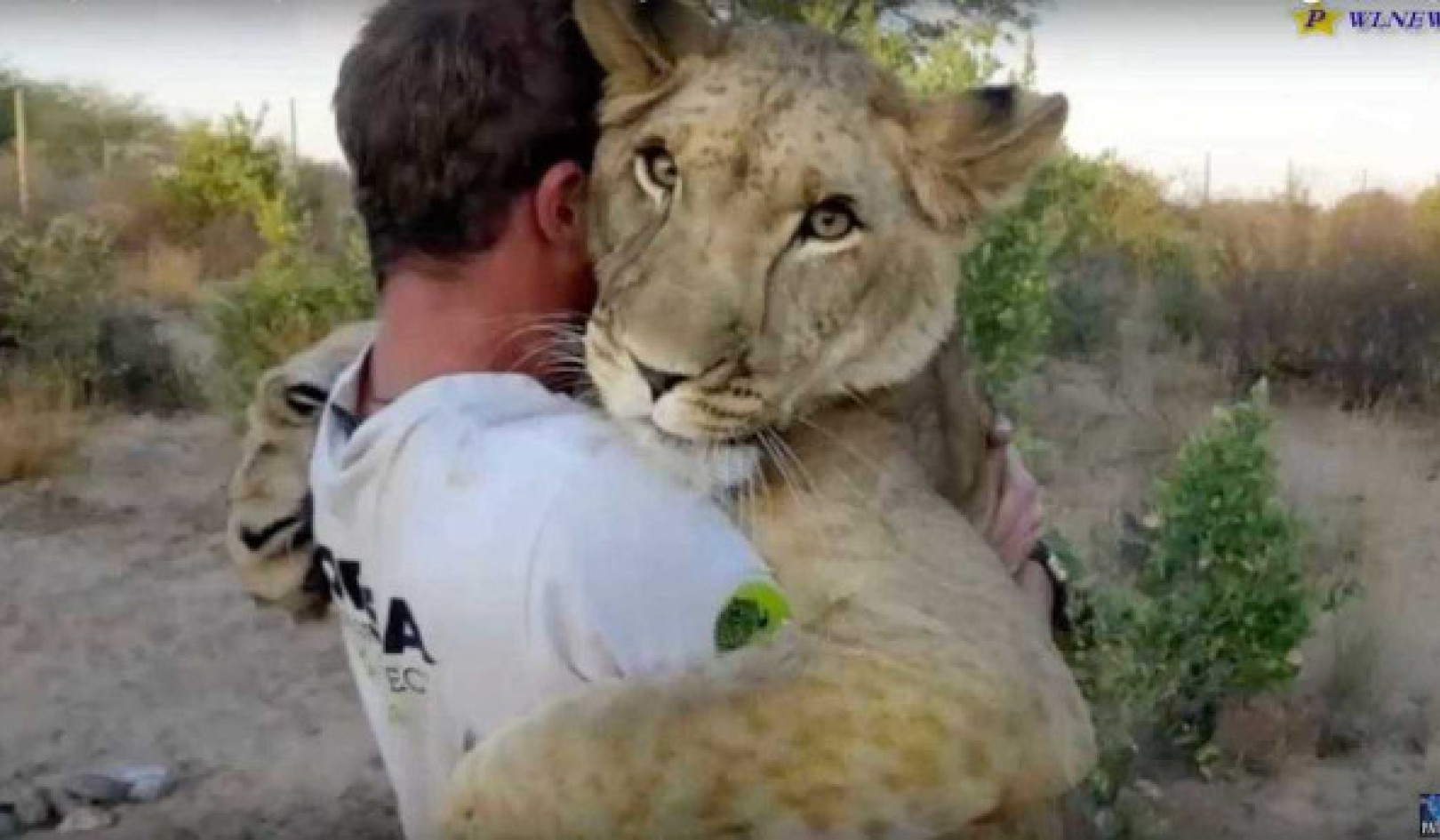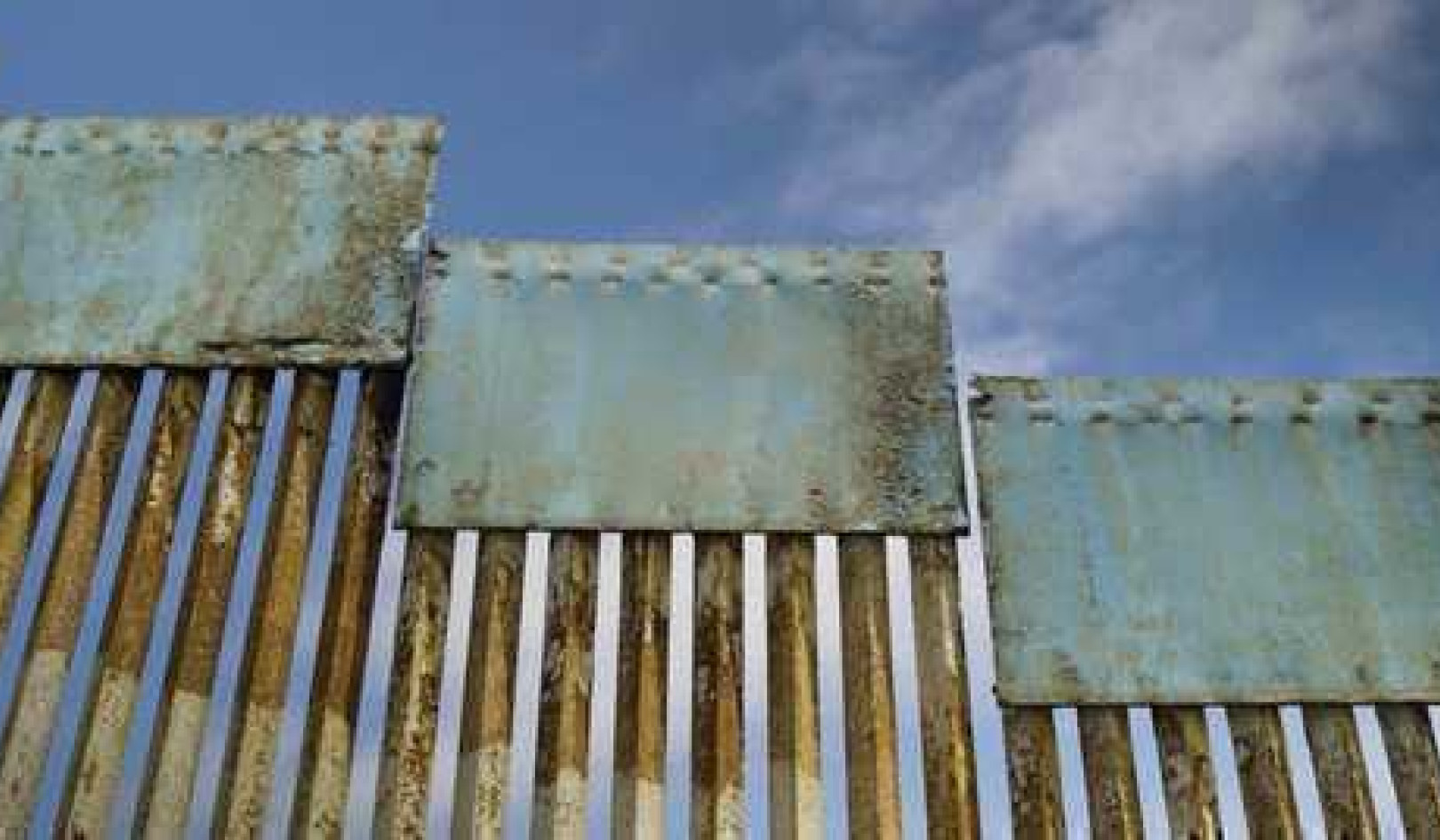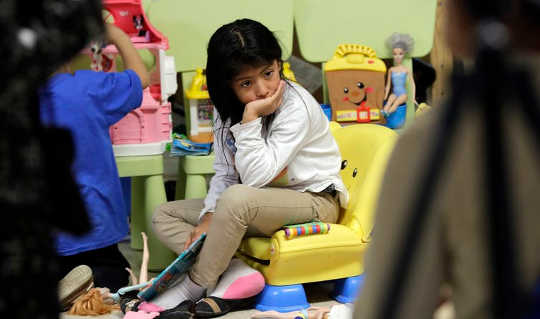
An immigrant child from Guatemala is seen at a facility in Texas on June 21, 2018. (AP Photo/David J. Phillip)
Thirteen Reasons Why is a Netflix drama that examines the consequences of violence and neglect on our children. Season 1 follows Hanna, a teenager who commits suicide as a consequence of the violence. Season 2 follows Tyler, a young man so relentlessly bullied that he shows up to school with a duffel bag of weapons.
Both seasons give us 13 reasons why the events occur. The reasons include copious peer violence (like sexual assault, exclusion, public shaming, bullying, betrayal, etc.) and subtly intimated parental and teacher neglect.
Sociologists understand these experiences of violence and neglect in childhood are part of what’s known as a Toxic Socialization (TS) process. Put simply, TS is a socialization process characterized by violence and neglect.
Violence includes emotional, psychological, spiritual and physical violence. Neglect includes neglect of our physical, emotional, psychological and cognitive needs. President Donald Trump’s policy to separate children from their parents at the U.S. border is an example of an incident that could result in toxic socialization.
The word “socialization” is used to emphasize the idea that adverse childhood experiences (ACEs) are not simply fact. Instead, in most human cultures, the assault and neglect of children are, to one extent or another, sanctioned.

13 Reasons Why. Netflix
Daily assault
We push our kids away from us at a young age and put them into groups and activities incapable of meeting even basic psychological needs.
We threaten, assault (spank and hit), shame and call children names with the idea that we are disciplining them. When I was a child, my mother justified her physical, psychological and emotional assaults by quoting Proverbs 13:24.
Whoever spares the rod hates their children, but the one who loves their children is careful to discipline them.
But religion is just one of the excuses people use when “disciplining” children. We have all heard the commonplace justifications used in our communities: “What doesn’t kill you makes you stronger” and “Boys will be boys.” Some, like U.S. Attorney General Jeff Sessions, even suggest neglect and abuse is sanctioned in the Bible!.
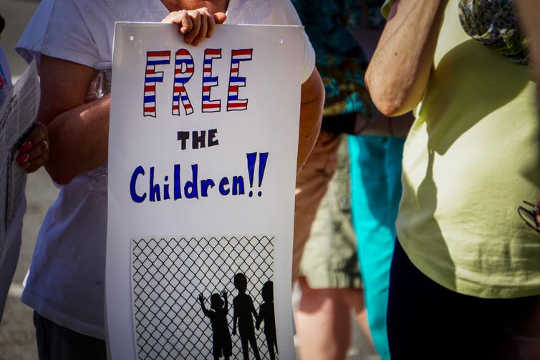
On June 14, 2018: A protester at a Keep Families Together rally in Detroit, Michigan holds a sign that says, ‘Free the Children!!!’ Shutterstock
Science can also be used to justify abusive behaviour., for example, the now recanted concept of the “alpha male.”
But does toxic socialization have a psychological, emotional, pedagogical or spiritual benefit? Is violence useful for shaping and disciplining our children?
I’ll be honest, I used to think so. In fact, I used to participate in the toxicity; but then, I started to get into the research. I changed my tune pretty quick.
Radical nonviolence
My partner and I were so shocked by what we found that we adopted ahimsa, a Hindu form of nonviolence adapted by civil rights leaders Mohandas K. Gandhi and Martin Luther King, Jr. To practise ahimsa, in part, means one causes no injury with deeds, words or thoughts. Now, we neither perpetrate nor allow any form of violence in our home. This is not because we’re worried about karma, but because we’ve read the science.
Why would we do such a radical thing? As it turns out, toxic socialization has a well-established adverse impact on mental and physical health. It is “a human tragedy” with lifelong … consequences.“
Sound like hyperbole? Think an occasional spank is a good thing for your kids? Think a little yelling never hurt anybody?
Not only is spanking not effective as a disciplinary technique, but it has exactly the same impact as regular physical abuse. And you’re not off the hook with psychological or emotional assault either, because researchers say that does even more damage.
Severe damage
Toxic socialization is associated with language delays, "significantly lower” IQ scores, lower grades and poorer performance in school.
It also impacts relationships. It makes us more sensitive to criticism, makes it harder to hear other’s viewpoints, harder to trust and harder to express emotions.
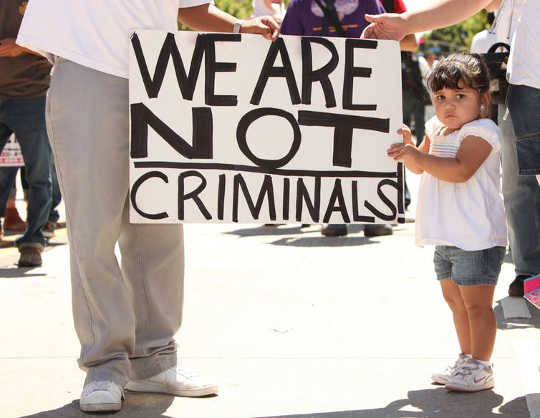
A 2010 protest in Los Angeles, Calif. for immigration reform. Shutterstock
Toxic socialization is also linked to addiction, eating disorders, personality disorders, conduct disorders and other post-traumatic stress disorders.
Increased criminality, greater risk of homelessness and a higher incidence of risky sexual behaviours are also linked to TS.
It’s not just our psychological and emotional well-being that is undermined by TS, our physical well-being takes a hit as well. Toxic socialization makes us weaker, unhealthy and sick. It undermines physical stature. It increases the risk of cardiovascular disease, cancer, obesity and accelerated aging, just to name a few.
Children’s complex PTSD
There is now a new class of PTSD called complex PTSD, reserved for kids who experience chronic maltreatment.
Lower cortisol levels caused by neglect, and the brain changes associated with stress in childhood, predispose us to conduct disorders, psychopathy, antisocial behaviours, reduced empathy, and increased suggestibility.
Researchers have made the connections between childhood neglect and aggression.
We should all be alarmed, especially if you are paying attention to U.S. and global politics, and the way our children are being treated.
Economic burden of TS
TS is also costly. The total economic burden on the United States is estimated to be more than half a trillion dollars a year. And that was back in 2010. Things have arguably gotten worse.
For gun manufacturers, pharmaceutical companies and providers of for-profit health care, all this is likely good news. They probably profit from the trauma.
But whether or not TS raises profits, we’re all harmed by it, even those at the top.
Making people sick
Those who experience violence and neglect suffer pathological modifications to their brain like enlarged amygdala and lower cortisol levels..
For those at the top —the aggressors — toxic socialization creates a kind of person that U.S. President Donald Trump caters to. The kind of person, like Corey Lewandowski, the former Trump campaign manager, who can “womp womp” after hearing about a child with Down’s Syndrome separated from his parents. It’s also the kind of person that might put on a brown shirt when asked to do so.
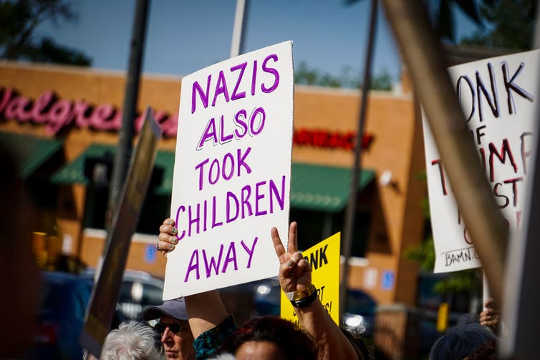
A sign from a Detroit, Michigan Keep Families Together protest this week reads, ‘Nazis also took children away.’ Shutterstock
What is the real reason for the current U.S. treatment of migrant children, including torture of immigrant children?
What are the reasons for callous government policies like tax cuts that make life more difficult for the poor, lack of movement on gun reform and assaults on school safety.
Is the U.S. administration deliberately creating a toxic socialization process? And if so, what is the end game they have in mind?
We all play a role in TS
Governments can’t do it alone. To accomplish this kind of brutality, they rely on us to help.
When schools do nothing to prevent peer victimization, when parents assault and neglect their children, when teachers insult and shame their students, when border patrol agents follow cruel and inhumane orders, they are adding to the cumulative effect of TS and contributing to the problem.
Is there hope? Humans are resilient, especially when treated with understanding and compassion; so yes, there is hope.
To help avoid all the toxicity, illness, distress, dysfunction and psychopathology associated with toxic socialization, we need to switch off TS.
Demand change now
Stop assaulting, attacking, making fun of and otherwise harming other living beings. Equally as important, step away from all forms of violence in your own life, and start healing from your own damage.
Most of us experienced some level of childhood toxicity, and so most of us have got shit we need to deal with.
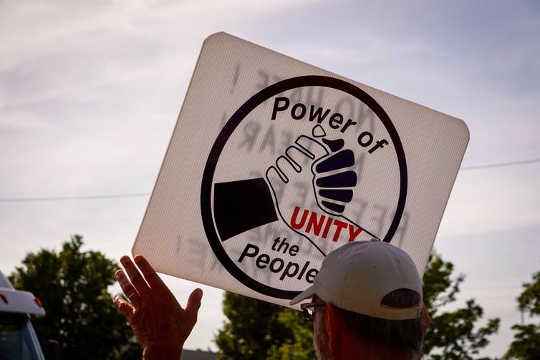
An activist at a Detroit, Michigan rally on June 14, 2018, holds a sign that says, ‘Power of the People’ to protest the separation of children at the border. Shutterstock
This does not mean we stay passive and accept the aggression of others. On the contrary. We need to educate each other about the consequences of our actions, and we need to stop contributing to the problem.
Reach out to others, across identities: Race, gender, class, sexuality, political beliefs.
Raise awareness of the deleterious effects of TS and challenge yourself and others. We have to create safe spaces. We have to stop the assaults.
Right now, we still have a choice. Participate (like some are), stick your head in the stand (like others), or change our behaviour, stand up for the rights of all people, especially children, and demand an immediate change.
It’s up to you. It is up to all of us.
Do it now, do it quickly. We need to end the traumatizing of all people. We need to come to the aid of the next generation of traumatized and damaged children.
About The Author
Mike Sosteric, Associate Professor, Sociology, Athabasca University
This article was originally published on The Conversation. Read the original article.
Related Books:
at InnerSelf Market and Amazon



















